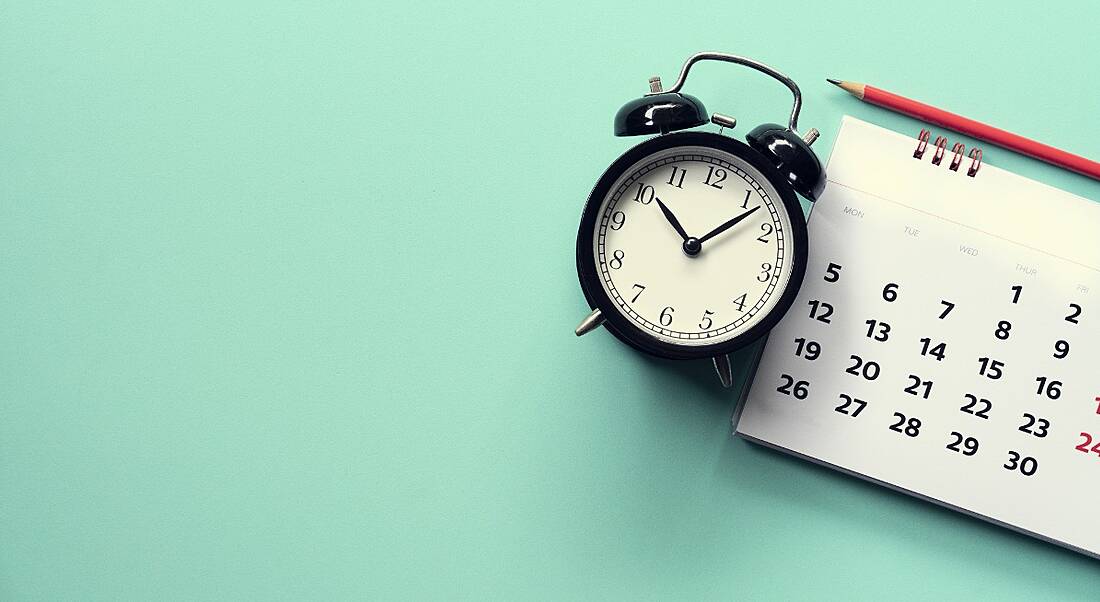In a recent Laya Healthcare survey, 80pc of people said they had not taken sick leave since March. The insurer’s head of health and wellbeing, Sinead Proos, sheds more light on the results.
Covid-19 has been a trying time for everyone, with disruptions to work and life taking a toll on many people’s mental health. However, in a recent survey carried out by Laya Healthcare, workers in Ireland said they had not been taking much time off work.
The health insurance company recently surveyed more than 1,000 employees in different industries. It found that 39pc of participants said they were struggling to cope with everyday life during Covid-19 and 91pc reported some level of anxiety, with concerns about friends or family getting sick or the potential of a second wave.
And yet, almost 80pc of respondents said they had not taken any sick leave since March. The majority (62pc) also said they had taken fewer holidays this year than last year, despite the increased levels of stress.
Laya’s head of health and wellbeing, Sinead Proos, said the impact of Covid-19 on people’s mental health has been “profound” and that it is “very much ongoing as we continue to navigate the pandemic in our professional and personal lives”.
“We are living in a constant state of change and uncertainty, while at the same time trying to maintain ‘business as usual’ in our lives,” she told Siliconrepublic.com. “Many of us are trying to navigate a new work-life integration, not to mention job certainty and security.”
The impact of working from home
In particular, working from home is affecting many people’s wellbeing. In the Laya Healthcare survey, 30pc said they are experiencing loneliness and isolation, while others cited skewed work-life balance and too many digital meetings.
“Essentially, what employers need to be cognisant of here is how a manifestation of these new behaviours can lead to burnout, loneliness and fatigue as we continue to contend with the pandemic,” Proos explained.
“In terms of sick leave, while you may well be sick, working from home runs the temptation to log in to reply to a couple of emails from home and next thing you know, you have worked a full day when ordinarily you would be resting.
“We are also social beings and, as such, interaction with colleagues plays a fundamental role in our work lives. Working remotely quells a lot of this interaction, leading to feelings of isolation and loneliness, profoundly impacting on our mental health and wellbeing.”
Just one in 10 people who took part in Laya’s survey said they are seeking professional help for stress and anxiety. But Proos said there are also ways employers can help.
“There may not be a blueprint for navigating a crisis on the same scale of uncertainty as Covid-19, but there are blueprints for ensuring that supports and resources are in place,” she said.
“We need to be in a position where we can guide and reassure workers that places of work are safe to return to with adequate health and safety protocols in place.
“We also need to support employees as they contend with personal and professional difficulties during this time. I would urge all business leaders that while costs may be significant to enable this, we really need to look forward and see this as long-term investment in our employees’ wellbeing and productivity.”

Sinead Proos. Image: Laya Healthcare
What should be our next steps?
For anyone living with stress, anxiety or other mental illnesses right now, Proos had the following advice: “We need to take a step back and take stock of the last six months. If you haven’t taken adequate annual leave to date, now is the time to consider it and make use of the time to rest and refresh.
“With that, I would encourage people to talk to their managers and HR leaders about their concerns and issues, whether that’s worry about returning to the place of work or personal struggles. We should also not underestimate the value of virtual services such as online counselling and clinical consultations, as well as trying to realise that physical health and mental wellbeing are two sides of the one coin.”
For employers, she added, leaders should prioritise checking in with their teams and allowing for “frank and open conversations”.
“In doing so, you can better identify what is needed in both the short and long term for employee wellbeing,” she said.
If you are experiencing stress, anxiety or other impacts on your mental health, Proos advised that there are some “excellent services that can provide confidential and impartial advice as a good starting point”. These include Mental Health Ireland, the HSE website, SpunOut.ie, Aware and Mental Health First Aid.
Click to enlarge. Infographic: Laya Healthcare
Want stories like this and more direct to your inbox? Sign up for Tech Trends, Silicon Republic’s weekly digest of need-to-know tech news.




